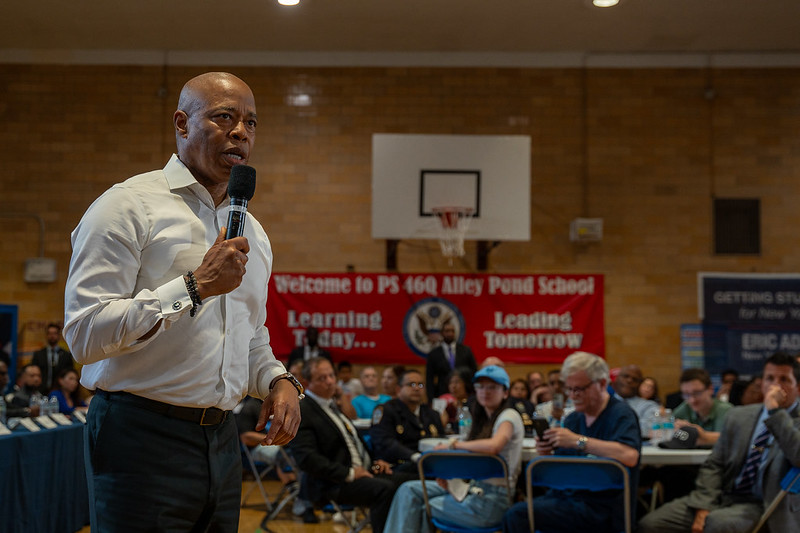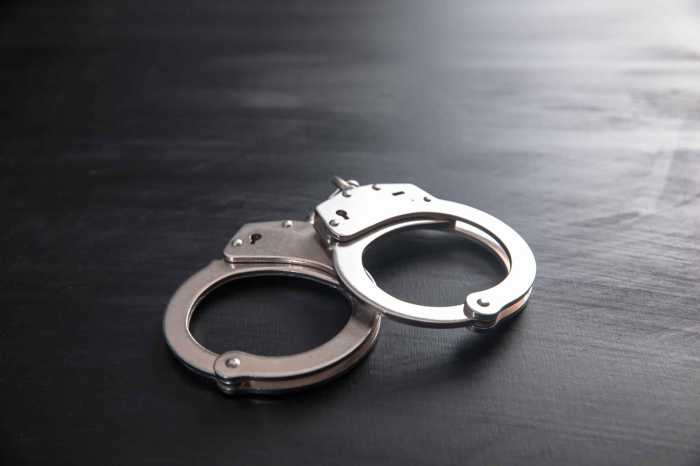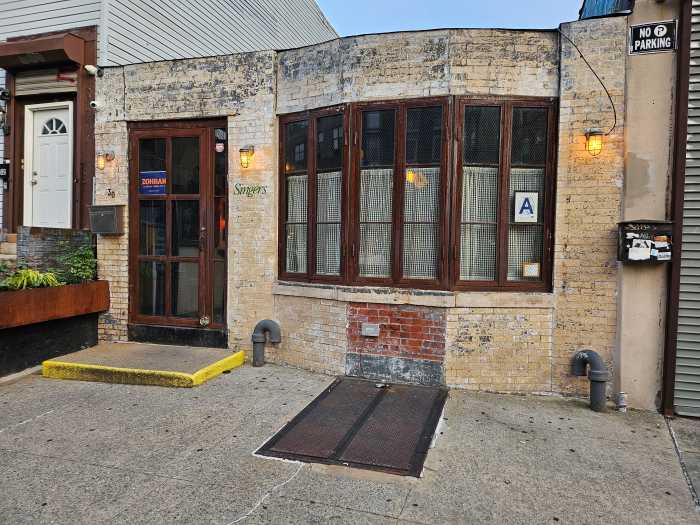By Kate Walter
Ever since my long-term partner deserted me, I wanted to meet new people and do something outdoors more challenging than tending the gardens in front of my building.
When I discovered that during the summer, the Friends of Hudson River Park sponsored a monthly cleanup of the jetties on the Gansevoort Peninsula, this seemed like a worthy ecological adventure for a single, restless, middle-aged gay woman.
Admid the glorious new greenery, this 7-acre scruffy spit of land, off W. 13th St., remains a parking lot for Sanitation vehicles. Years ago, the waterfront in the Village, known as “the trucks,” was a seedy, gay-male cruising spot before the area was gentrified. Since I live on West St., across the highway from Hudson River Park, this is my backyard. I had visited every other local segment, including the children’s water pier, where I was kicked off for being there without a child. This rocky peninsula was the final frontier.
I arrived at the south jetty at 9 a.m., wearing long pants and shoes with gripping soles, as instructed. Since I didn’t see anyone around yet, I went to find a cup of coffee, but the park cafe was still closed. As I came back, I spotted volunteers with bright-orange life vests climbing on the rocks. It looked like fun. I found the co-ordinator in a golf cart by the north jetty.
I signed in, got a vest, plastic gloves, large trash bag, bottle of water. I was ready to work. I’m chatty and approached a couple of women who seemed to be veterans, but they were markedly unfriendly, like snotty girls in high school who acted superior. I do volunteer work in the gay community for several groups (stuffing envelopes, checking guest lists) and I was used to other workers being more welcoming. Ironically, the friendliest people I spoke to on the pier were first-timers like me.
Even without instructions, it was obvious what to do — walk out on the rocks and pick up garbage. At least some guy warned me: “Be careful. It’s slippery.” I’d assumed these cleanups are scheduled for low tide when the moss-covered stones are visible and most of the jetty is accessible. Yes, the rocks were deceptively slick, and at a few points, standing alone seemed perilous.
I landed up crawling on my knees and sliding along on my rear to grab elusive plastic bottles on the edge. It would have helped to have one of those grabber contraptions they keep in supermarkets. The upper areas were easier to walk on because they weren’t covered with seaweed, but nasty, rusted metal wire stuck out of the rocks. I had to zigzag around it.
This job was trickier than I’d thought. I imagined myself out on the water communing with nature, getting in touch with the spirit of Herman Melville, who worked for 20 years on the docks as a customs agent at the Gansevoort Piers. (The area was named after General Peter Gansevoort, a Revolutionary War hero and Melville’s grandfather.) As a lit major at a women’s college in New Jersey, we’d analyzed “Moby Dick” in my American novel class taught by my favorite professor. But I felt no literary vibes; all I felt was sticky and sweaty and I had to pay close attention because I did not want to slip and break my wrist or ankle. I wondered if this was worth the risk.
All I collected was lots of cans and plastic bottles, candy wrappers and pieces of styrofoam, presumably tossed by idiotic tourists from piers or boats. The hardest part was trying to untangle the large plastic bags that wrapped around the rocks. The best I could do was rip off pieces. The jetty smelled like dead fish. By the time my sack was filled, the garbage I was lugging was so heavy, I had to drag my bag to the drop-off.
When we finished, after an hour and a half of hard work, I was relieved to remove the suffocating life jacket.
“Where’s the coffee?” I shouted to a man who seemed to be in charge. By now, I would have killed for a cup of java. “Wasn’t that the promise?”
He smiled, thanked me and said, “You’re getting a moral reward.”
I walked home from Hudson River Park, dripping with sweat and smelling bad. My shirt was wet in back and front, my sports bra was soaked, the band of my cap was so damp it stuck to my forehead. When I got to my apartment, I peeled off my stinky, wet clothes and rushed into the shower. Afterward, I still felt grungy, like I needed another one. The seat of my jeans was green, so I tossed the pants into the wash immediately.
The day after the cleanup was Gay Pride Sunday. To my surprise, I woke up hobbling around my apartment; my calves and ankles hurt. This was upsetting because I’d planned to march with my church group. I was convinced I’d injured myself in yoga class. Did I spend too long in the bow pose? Was I pressing too hard in downward dog? As I sat on the couch and rubbed arnica cream all over my lower legs, it hit me — this was from my unusual environmental exertion. My muscles were strained from twisting and turning at weird angles I wasn’t used to.
Now I had to modify my parade plans, so I decided to join my contingent on Fifth Ave. in the Village, rather than walk the whole route like last year. I’d participated in this event for 30 years. I could trace my evolution though the different lovers and friends I’d marched with over the past decades — from the militant Lesbian Feminist Liberation (1970s) to Gay Teachers Association (1980s), Gay Writers (1990s) and now Middle Collegiate Church.
I spied the banner, jumped into the avenue, got a hug from my minister, Jacqui. She was dancing while handing out stickers. Our float was playing disco classics, so I romped down Christopher St. to Diana Ross singing “I’m Coming Out” while a pumped-up young crowd cheered and waved rainbow flags. I was touched by the revelers who leaned over police sawhorses to put their hands on our arms — skin to skin — as if we were celebrities. That gesture startled me. When I looked closely, I was shocked at their youth; some were barely in high school. I had a boyfriend in 10th grade and was such a nice Catholic girl, I did not come out until I was 25.
Our sound system started blasting “We Are Family” and everyone was singing: “I got all my sisters with me.” The energy was high and I was having so much fun that I forgot the pain in my legs until I got home. I massaged my aching feet and took a bath. I had to admit that at my age, the combination of my two types of activism in one weekend exhausted me. The next day the world would return to normal. The gay kids would retreat into closets in outer-borough neighborhoods. The garbage would reappear on the rocks. But for one splendid weekend the jetties were clean and I felt happy and free.





































